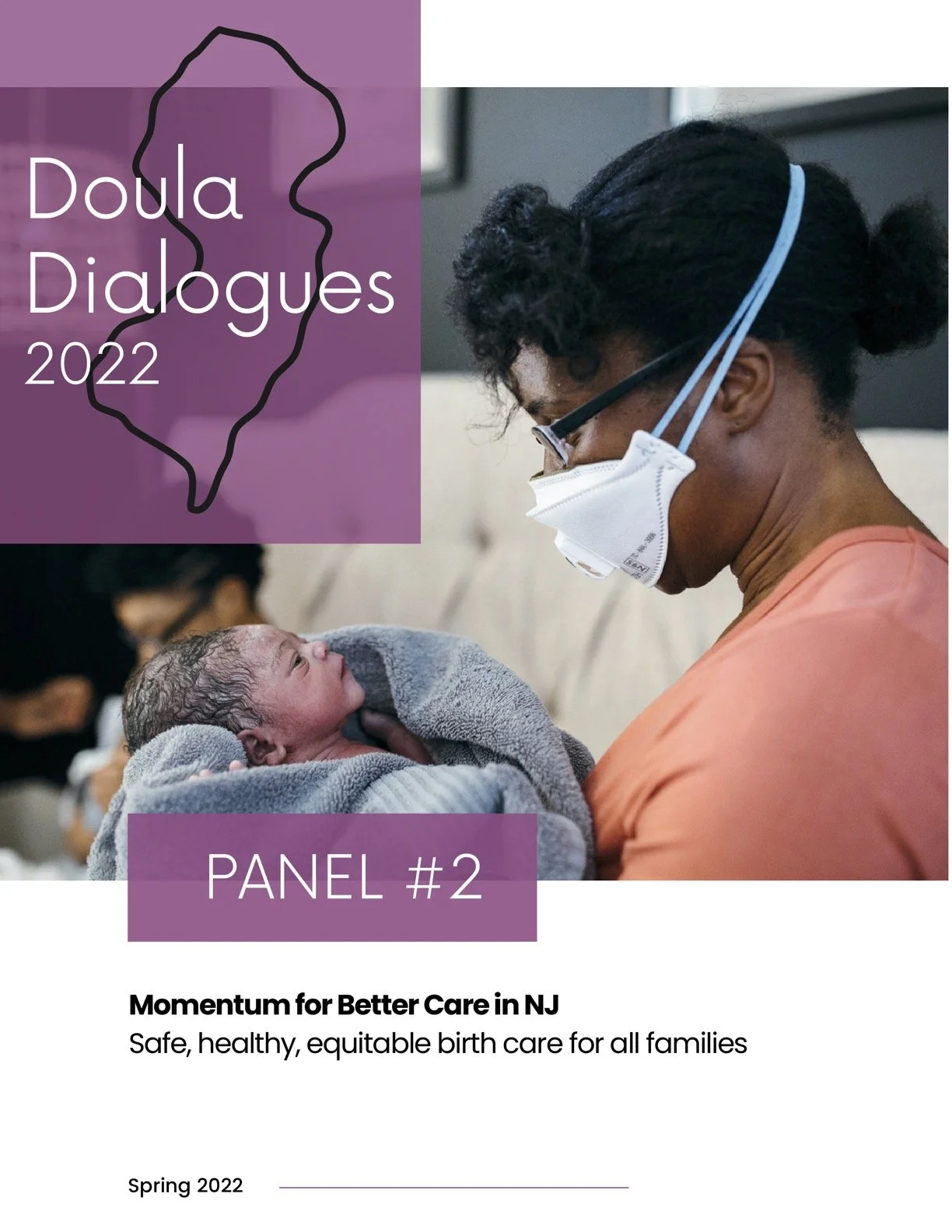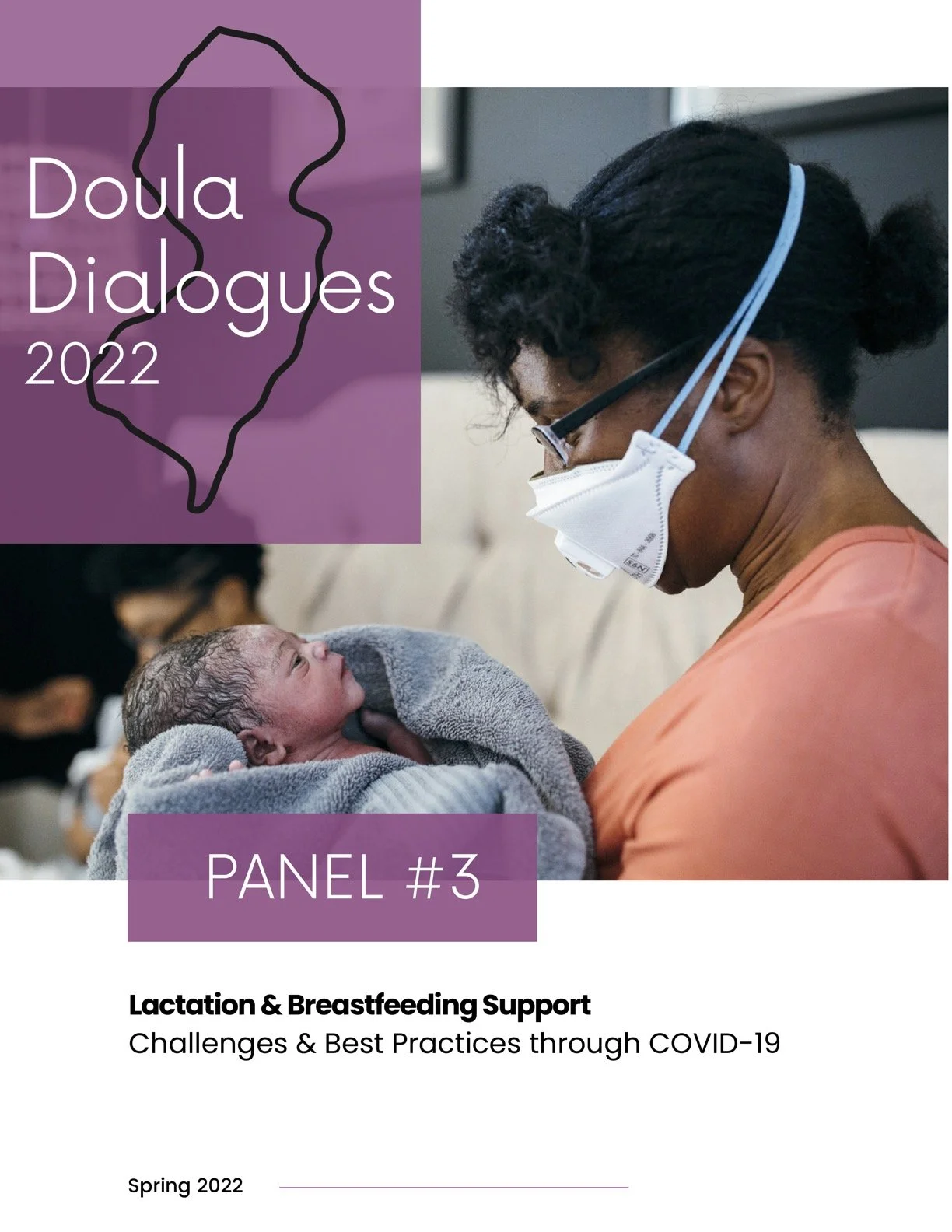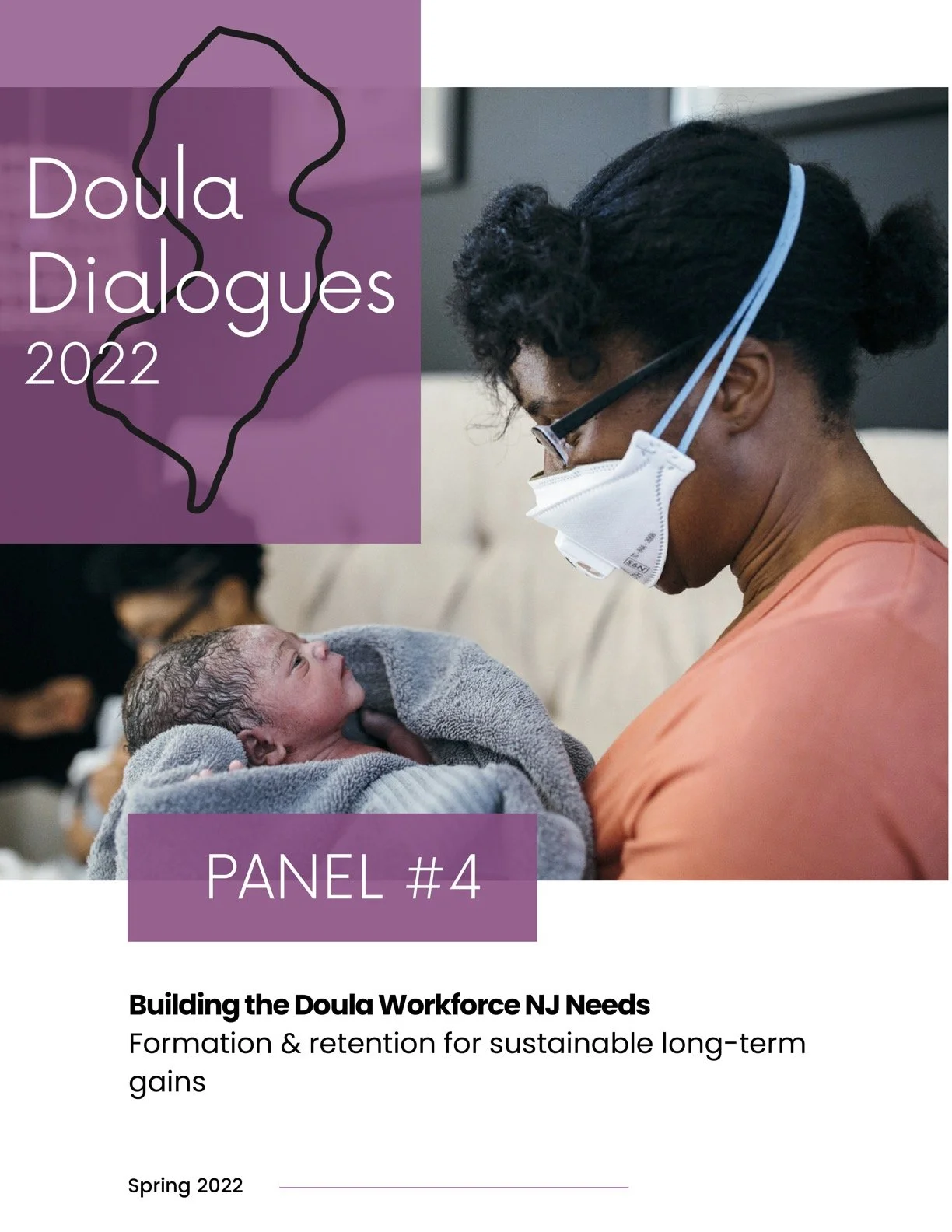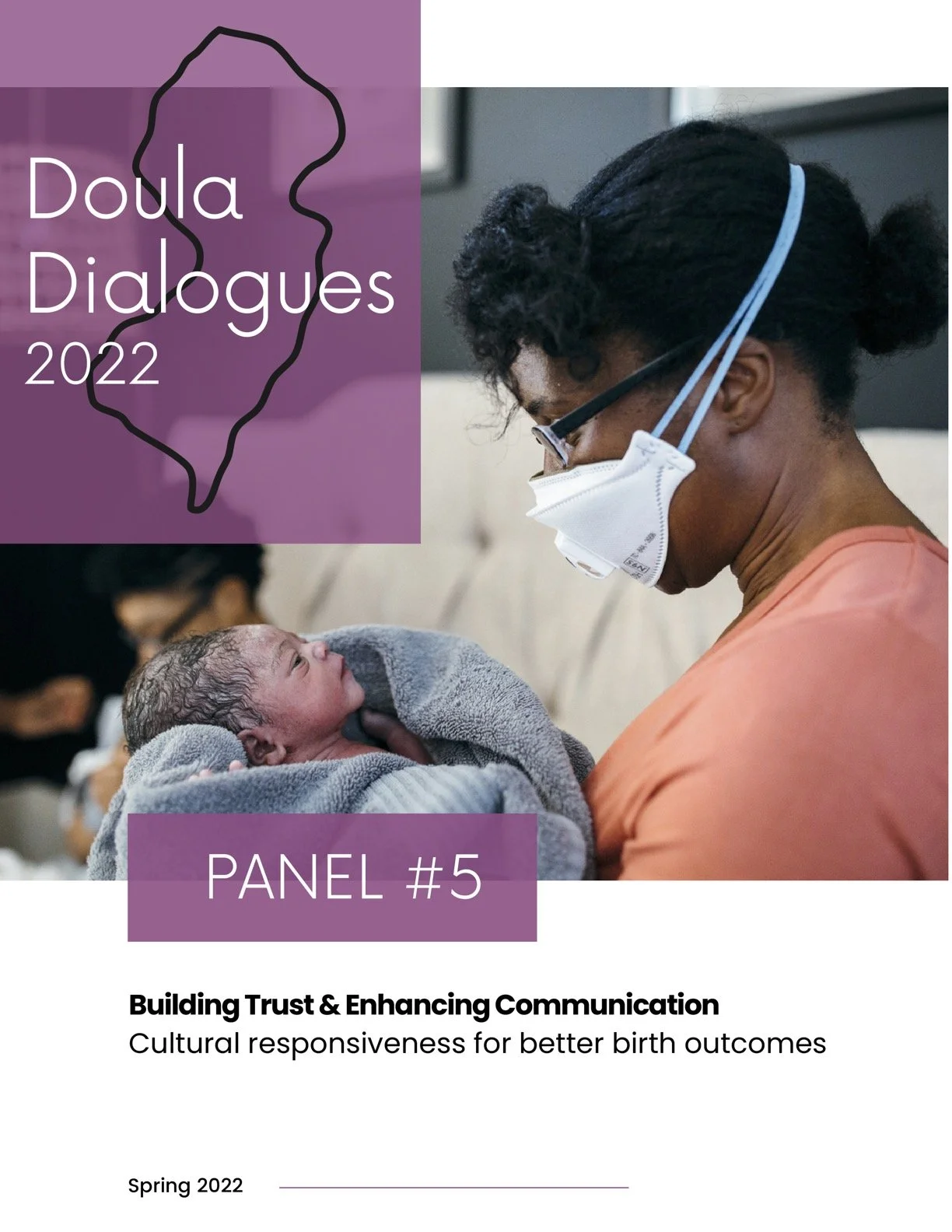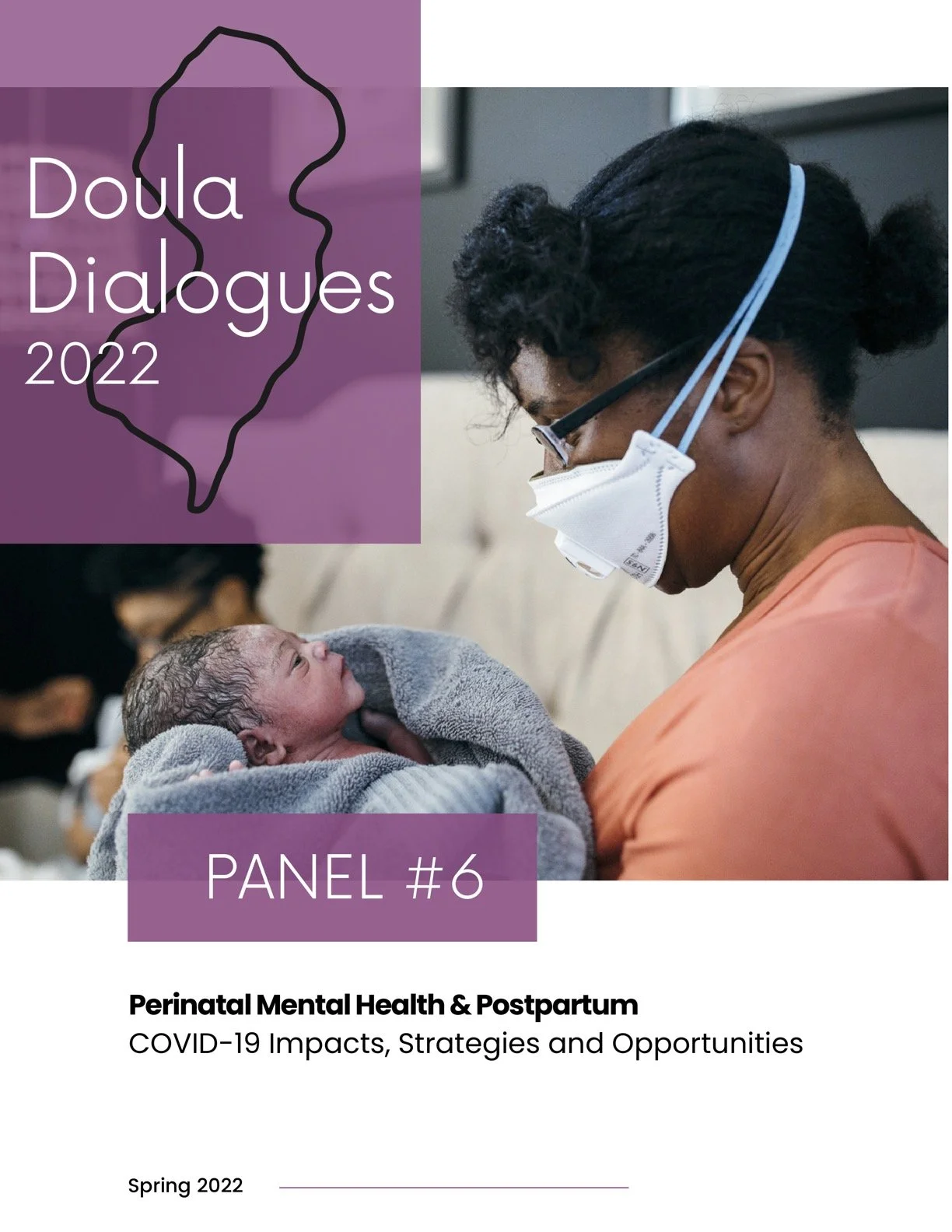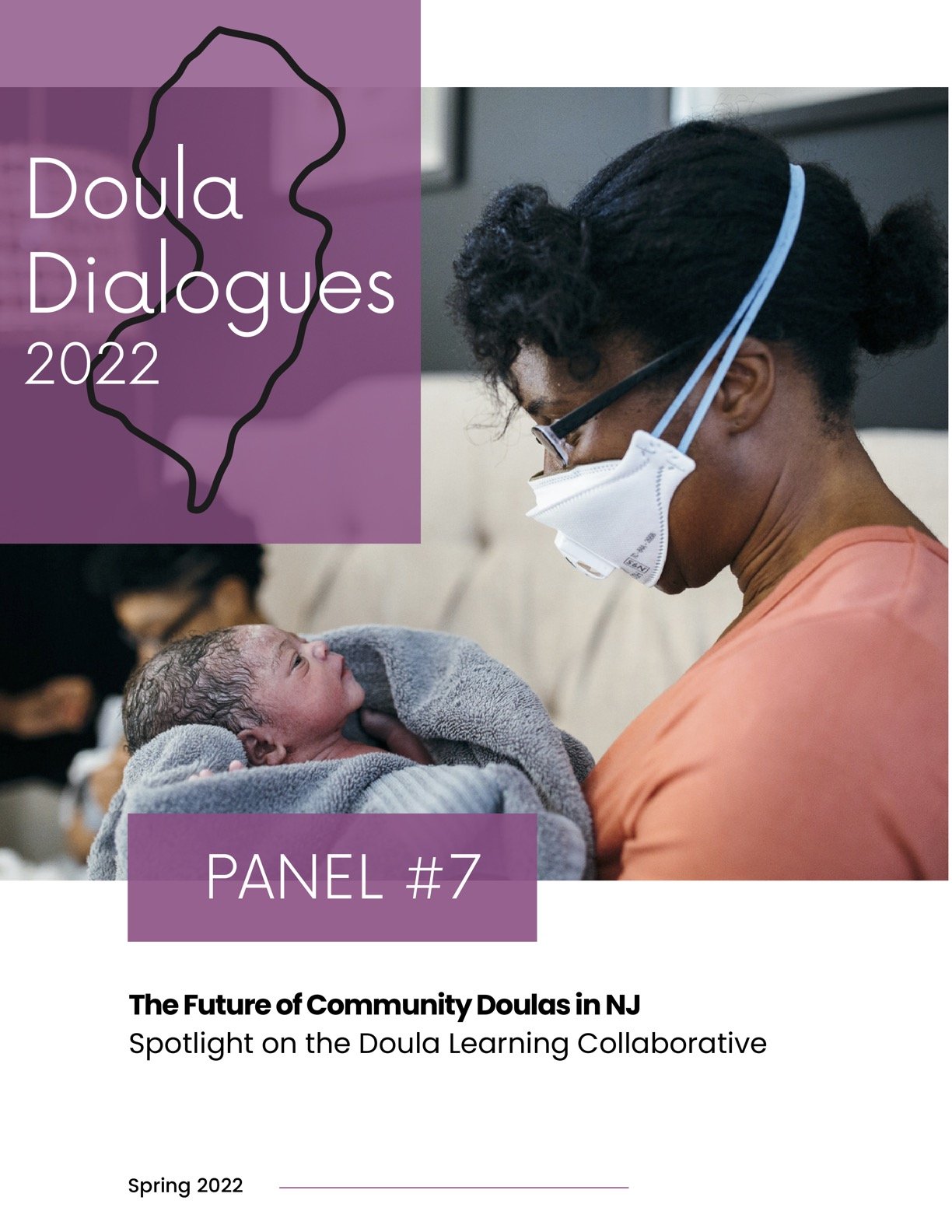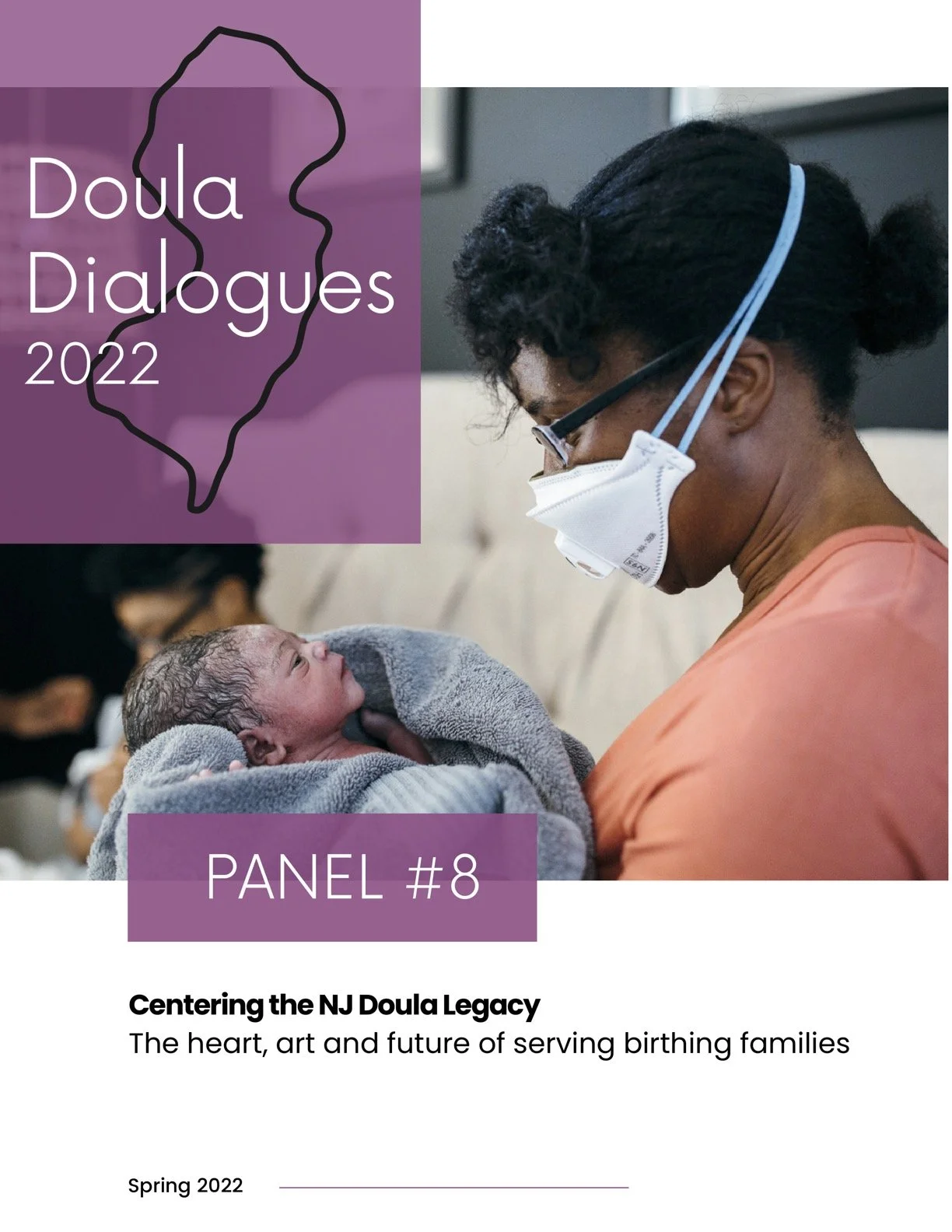Welcome to the NJ Doula Dialogues
This collaborative production centers the lived experiences of NJ doulas working through the COVID-19 pandemic.
Thank you to Co-Executive Producer Jill Wodnick, Montclair State University, the NJ Department of Health and all Community Doula organizations who contributed to the success of this project.
We hear you; we see you; your work matters.
Topics emerging from these candid listening sessions included:
COVID costs, adaptations and resilience strategies;
building momentum for better maternity care in NJ;
breastfeeding during COVID-19;
postpartum and mental heath among perinatal clients;
building trust and communication among birth teams;
and a look forward and back at the legacy and future hopes for NJ doulas and the families they serve.
This project elicited important policy recommendations from a crucial boots-on-the-ground workforce.
Preparing for Future Emergencies and Disasters in NJ
Emergency planning and preparedness in NJ needs to include a focus on pregnancy, birth and infant feeding through emergencies and disasters with the collaboration of mutli-discplinary professionals.
Integrated planning should be held at municipal, county and state levels and should include lived experiences of expectant and new parents, as well as doulas, breastfeeding peer counselors and community health workers.
Climate disasters in NJ have an increasing and disproportionate impact on low income communities and those who are pregnant. NJ therefore has a responsibility for coordination and program design toward environmental racism remediation that can work toward solutions identified by community-based doulas and those most impacted by this harm.
Navigating NJ Resources and Regional Programs
NJ doulas identified a critical need for a robust referral network in instances of domestic violence, homelessness, food insecurity, or lack of childcare. Coordination with the newly-rebranded ConnectingNJ should be a priority for bringing visibility and appropriate referrals to NJ doulas.
NJ doulas and parents struggle to navigate a complex and dense landscape of services among 564+ municipalities. For improved geographic visibility, municipalities may want to have a landing page for pregnancy resources in their community and links to local early learning services. In addition to zip code specific services, county-based and regional coordination of care for the perinatal period is needed.
High-Value Maternity Care in NJ
NJ hospitals should invest in inter-professional education about the role and responsibilities of doulas. When nurses, midwives, physicians and allied staff in labor and delivery units understand the unique role and responsibilities of doulas, the experience of giving birth is enhanced for patients, and so too the workplace experience for doulas offering labor support.
Expanding access to doula care often means doulas must work within systems that have been historically hostile or unfriendly to doulas and/or physiologic birth. Acknowledging this pattern and working toward patient-centered care with shared, respectful decision making (among clinicians and childbearing families) will be essential to safeguard doulas’ successful contributions to the improved outcomes everyone desires.
NJ childbirth education is an underutilized resource to improve outcomes and elevate regional resources. Universal access to quality prenatal education in multiple languages will reduce barriers while adding impact and support for NJ expectant families. Family success centers and other community-based agencies can support NJ doulas to train and become hired as childbirth educators, further reducing gaps and fragmentation among clinical and community-based services.
Doulas continued to articulate the need for more NJ postpartum supports to help new families navigate the stressful transition between hospital and home with a newborn.
Doula Workforce Sustainability
Doulas in NJ identified significant obstacles and barriers to becoming a Medicaid provider. Cumbersome enrollment, pay parity and a living wage for doulas receiving Medicaid reimbursement must be priorities for NJ doula sustainability and workforce development.
Undoing Racism for Improvements in Health Equity
NJ doula panelists organically identified multiple overlapping societial, community, relationship and individual factors among the socio-ecological model diagrammed below. Any policy lever that addresses these multi-factoral impacts will have a positive effect. Ongoing anti-racist policy efforts are urgently needed.


